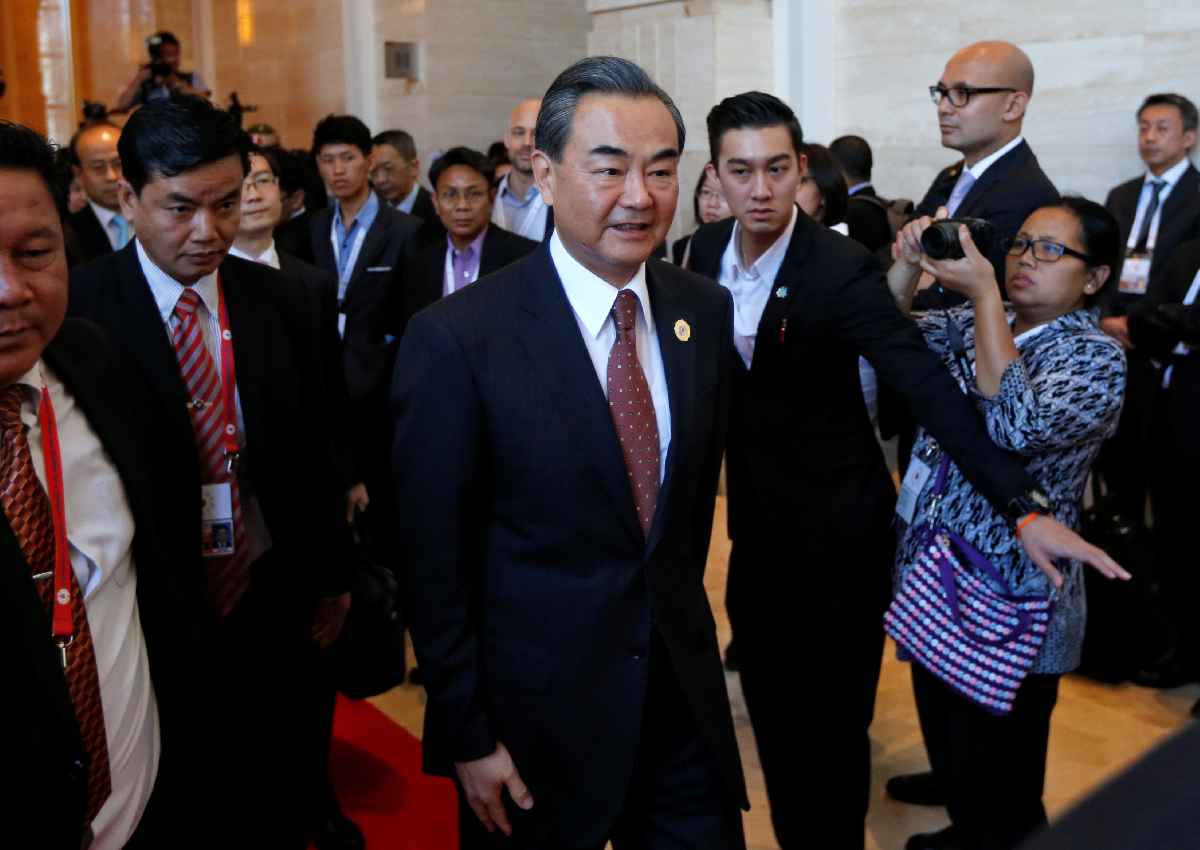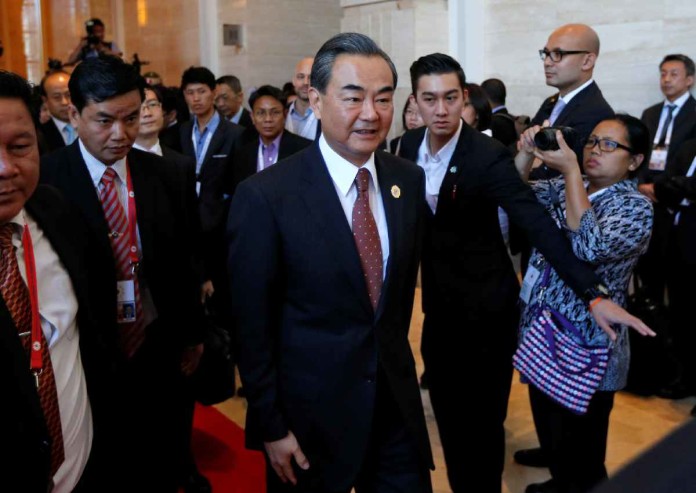VIENTIANE – Southeast Asian nations Monday ducked direct criticism of China over its claims to the South China Sea, in a diluted statement produced after days of disagreement that gives the superpower a diplomatic victory.
The 10-member Association of Southeast Asian Nations (ASEAN) avoided mention of a ruling by a UN-backed tribunal which had rejected China’s claims and infuriated Beijing.
Instead, ASEAN repeated that it was “seriously concerned” by “land reclamations and escalation of activities” and called for “self-restraint” in the strategic waterway.
The contested sea, through which some $5 trillion in shipping passes annually, has been a source of increasing tension between China and its Southeast Asian neighbours as well as the United States.
Regional diplomats are gathered in the Laos capital Vientiane for an ASEAN summit that has been dogged by the flashpoint issue of territorial claims.
It is the first time key players – including US Secretary of State John Kerry and Chinese Foreign Minister Wang Yi – have met en masse since a UN-backed tribunal a fortnight ago rejected Beijing’s claims to vast stretches of the sea.
ASEAN’s leading envoys have spent days wrangling over how to respond to the ruling amid splits, acrimony and fears the bloc is faltering in its response to the major security challenge of the day.
Staunch Beijing ally Cambodia has been accused of scuppering efforts by the bloc to unite in a call for China to abide by the tribunal’s verdict.
Four ASEAN members – Vietnam, the Philippines, Malaysia and Brunei – have competing claims with Beijing over parts of the South China Sea.
Most members want to keep pressure on China over its campaign of island-building.
But ASEAN operates on a tradition of consensus diplomacy, meaning a single nation can have an effective veto if it disagrees.
A statement was finally released on Monday after hours of last-minute talks finally cut through the impasse – but it tacked away from criticism of Beijing.
“We just averted another potential debacle,” one Southeast Asian diplomat told AFP, referring to a 2012 summit in Cambodia at which the bloc for the first time failed to issue a joint statement because of disagreements on the South China Sea.
Another diplomat, when asked if Monday’s statement had been watered down, said: “It’s a compromise statement. And in a compromise someone has to give way.” The decision will be a boon to China, which has angrily rejected the international tribunal.
Earlier China’s Foreign Minister Wang heaped praise on Cambodia – to whom it ladles out aid and loans – for holding out against fellow members.
State-run Xinhua news agency said Wang “highly appreciates Cambodia’s efforts to uphold justice over the South China Sea issue”.
“We will not allow external forces to cause turbulence in the region by hyping up the so-called South China Sea arbitration,” Wang said in a clear reference to Washington.
Kerry arrived in Laos on Monday and is expected to hold talks with Wang later in the day.
The US says it takes no position on the territorial disputes but argues for free sea and air passage through what it considers international waters.
It has also called on Beijing to accept the tribunal ruling.
Tensions on the Korean peninsula are also likely high on the agenda for both China and the US.
Pyongyang carried out its fourth nuclear test in January, followed by a series of ballistic missile tests including one last Tuesday.
In response Seoul announced plans to host a US missile defence system on its territory, sparking fury in Pyongyang and concern in Beijing.
North Korea’s newly minted Foreign Minister Ri Yong-Ho is attending the Laos gathering, a rare moment at which senior officials from Washington, Beijing and Pyongyang will be in the same room.
Earlier in the day he met Wang for talks at the sidelines of the meeting.
Ri, a former nuclear negotiator and party princeling, is making his debut appearance at a major international gathering.
Washington has played down the likelihood of talks between the two countries during the summit.
But the summit would still give Kerry an opportunity to confront North Korea on its weapons programme, a US official told reporters before Kerry’s visit.






